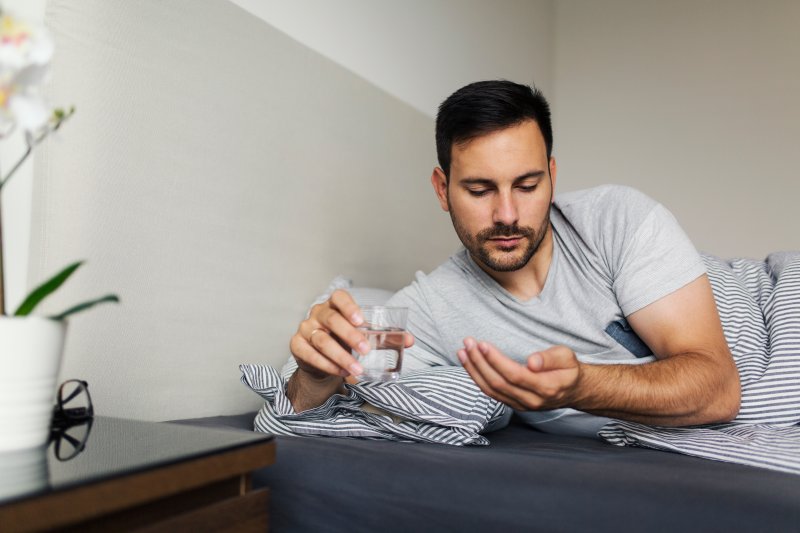
It is not uncommon for many individuals to turn to sleeping pills for help. After a long, exhausting day, taking something that promotes better rest may not sound like a bad idea. However, if you are living with sleep apnea, taking this type of medicine may prove more harmful than helpful. Read on to discover why it’s best to skip sleep aids if you want a more restful night.
What Do Sleeping Pills Do?
The simple answer might be that they help you sleep, but do they? Technically, yes; however, when you have sleep apnea, the effects of the medication can exacerbate your inability to get uninterrupted sleep.
Sleeping pills actually allow your airway to fully relax. This is not a desirable outcome when living with obstructive sleep apnea. The reason is that an airway that easily collapses causes ceased breathing throughout the night, eventually leading to the brain triggering the body to wake up. Gasping and choking on air tends to be the result.
Are There Other Side Effects of Sleeping Pills?
Apart from the fact that they relax the airway and cause breathing disruptions, sleeping pills can also lead to other serious issues, including a dependence on the medication, parasomnia (i.e., bedwetting, sleepwalking), and even a tolerance for it, meaning that you will require greater doses in the future.
Certain medications such as those that treat anxiety or relax your muscles (i.e., benzodiazepines) are known to create a calming sensation that suppresses your breathing – something OSA sufferers should avoid.
Others such as opiates that treat pain can also slow your breathing rate and make it slightly harder to get a deep breath.
What Kind of Help is Available?
Instead of turning to over-the-counter sleep aids and similar medications, it’s best to meet with a sleep dentist who possesses the skills and training to address sleep apnea. Since the issue is that you cannot get enough adequate rest each night, appropriate treatment will not only reduce your symptoms but also prevent the need for outside medicines.
You can be fitted with a custom oral appliance that will help to keep your airway open while asleep, but you’ll also need to commit to a few lifestyle changes, including reduced alcohol consumption, an earlier bedtime, reduced caffeine intake, and additional ways to destress and prepare your environment so that it is conducive to sleep (i.e., blackout curtains, dim lights, no electronics).
Don’t be tempted by what many view as “magic pills” for sleep. Stick with a trusted sleep dentist who can help you get the rest you need without incorporating other medications along the way.
About the Author
Do you suffer from sleep apnea? Dr. Shelley Shults is a board-certified registered nurse, general dentist, family nurse practitioner, and dental sleep medicine practitioner who wants to help. Leading a team of professionals at Powell Dental Sleep Solutions, she treats individuals with OSA who are looking for any way to get the sleep they need, even with the help of sleeping pills. If you are considering additional medicine to help with bedtime, make sure to reach out to our team to discuss the pros and cons. You can do this by contacting us at (614) 681-8593.
